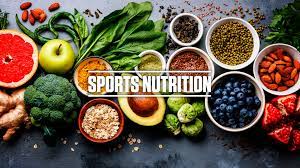How sports nutrition can improve recovery and reduce injuries?
Injury
prevention for athletes is a constant anxiety. There are various strategies to
stop this, but maintaining their health might feel overwhelming. Making an
effort to improve their sports nutrition can help to reduce their risk of
injury. In this blog, let's learn how sports nutrition can improve recovery and
lower injuries.
Bodybuilders
and even casual fitness enthusiasts consume protein to stay in shape and
fulfill their daily protein requirements. Consuming foods high in proteins and
other nutritional components has been the main focus of bodybuilders and
fitness enthusiasts. Such factors are predicted to propel the market expansion.
In addition, according to a research report by Astute Analytica, the Global Sports Nutrition Market growing at a compound annual growth rate (CAGR) of 4.8%
over the projection period from 2022 to 2030.
What
should people include in their diet to lower the risk of injury?
People are
aware of how proper sports nutrition might aid in injury prevention it is time
to examine what this implies in terms of what they should be consuming.
Vitamin D
and calcium
Calcium and
vitamin D both support bone health, lowering a person's risk of stress injuries
from strenuous exercise. Low-fat dairy products including milk, cheese, and
yogurt contain calcium. Foods rich in vitamin D include cheese, egg yolks, and
fatty fish. Alternatively, they might decide to take a dietary supplement.
Protein
and carbohydrates
During
activity, carbohydrates maintain a person's energy levels. Because their
muscles can only hold so many carbohydrates, it's critical to keep them
"topped up" so their body can obtain the energy it requires.
Person
muscles can grow, mend, and maintain their strength with the aid of protein.
According to this comprehensive article on sports nutrition, "Protein
foods will supply enzymes, the building blocks (amino acids) for hormones,
muscle tissue, immune cells, cartilage, bones, and blood."
An hour or
two before exercising and 30 minutes after finishing a workout consume both
carbohydrates and protein. People have a choice between doing this through
their food and using supplements. For the precise amount of protein and
carbohydrates they need, many athletes select smoothies and other supplements.
Fats: Some fats can be healthy and that
people should include in their diet, especially if they exercise frequently.
These fats give their body's cells energy, aid in self-repair, lower
inflammation, and maintain lubrication in their bones, ligaments, and tendons
to facilitate movement. Fish, nuts, oils, and other meals can all provide
essential fats.
Iron: It's critical to consume adequate
iron, especially during the healing process. Our bodies use iron to make
collagen protein and blood cells. Our bodies are held together by collagen,
which gives our bones, muscles, tendons, and skin structure. People can
understand how important it is for healing wounds! Foods high in iron include
eggs, red meat, and fish.
Potassium
and magnesium
Both potassium and magnesium support the health of our nerves and muscles. Magnesium also aids in the development of bones. Nuts, legumes, whole grains, and seeds are among the foods that are excellent for consuming potassium and magnesium.

Comments
Post a Comment